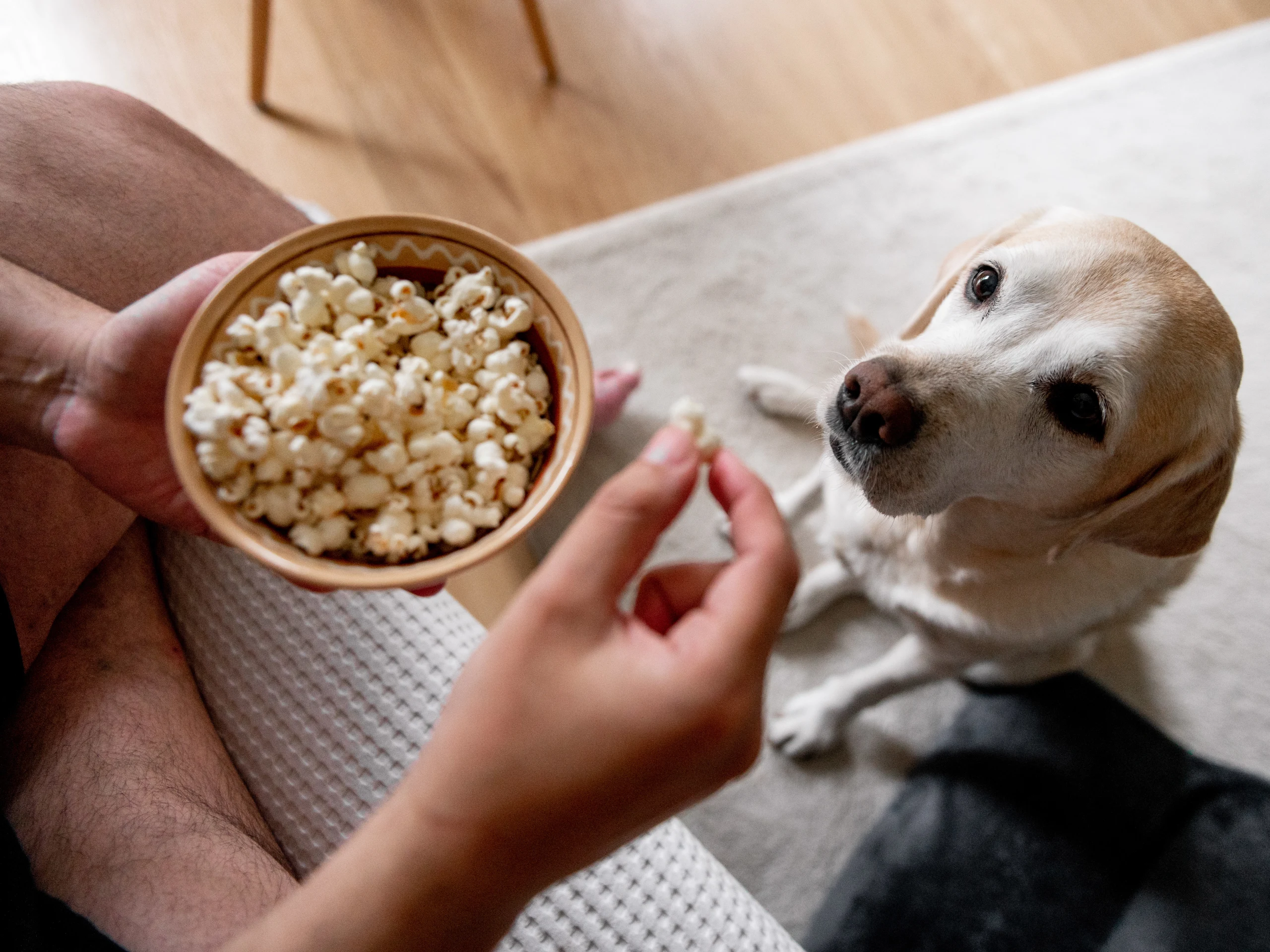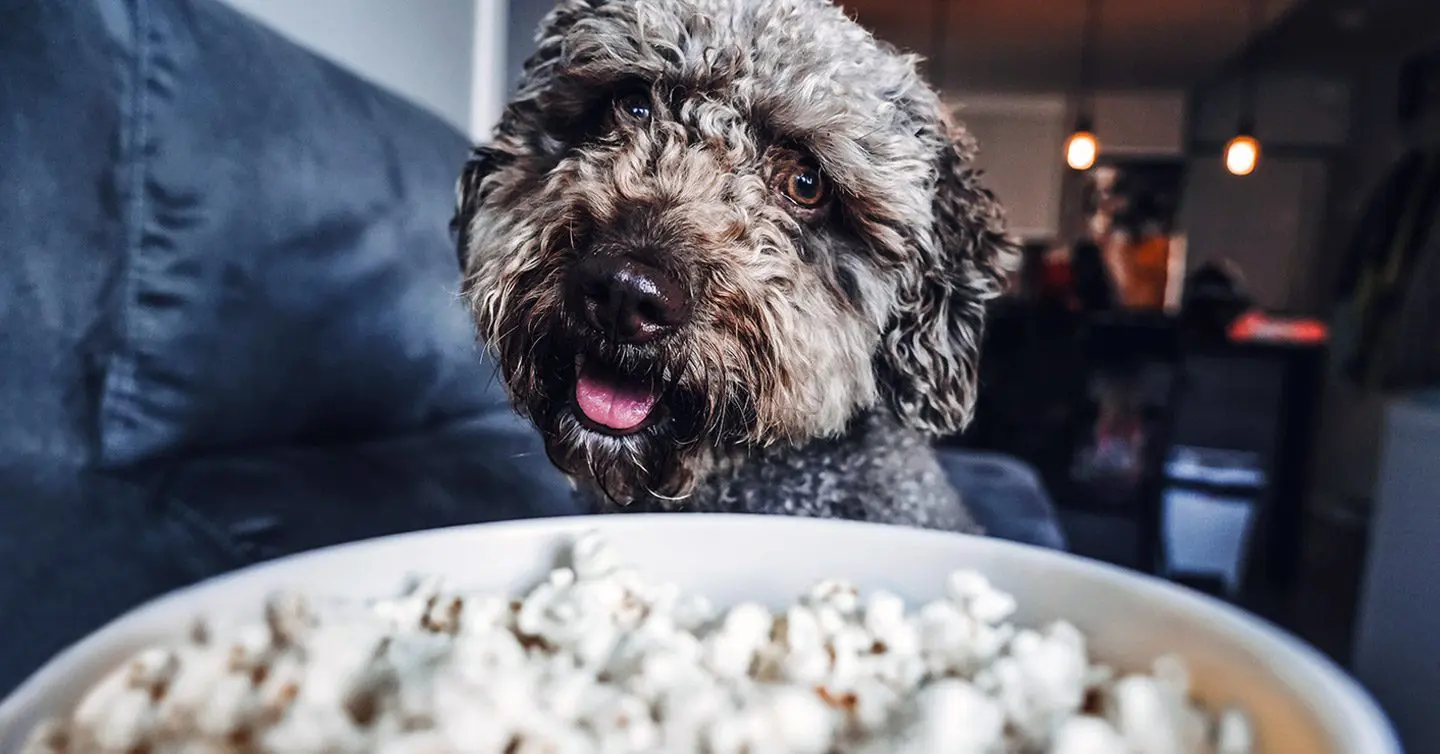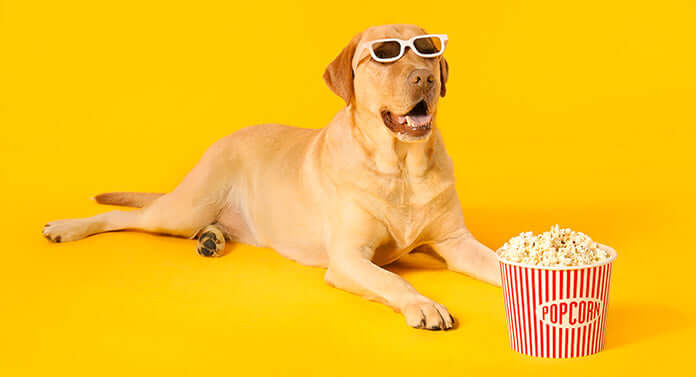Popcorn, a beloved snack that accompanies movie nights and cozy evenings, is a treat many of us can’t resist. And it’s not just us humans who are drawn to its irresistible aroma and satisfying crunch. Our furry friends, with their pleading eyes and wagging tails, often try to convince us to share this tasty treat with them. But before you give in to their adorable requests, it’s important to understand whether popcorn is safe for dogs or if it poses any risks to their health. So, keep reading to ensure your pup’s well-being is always a top priority.

Is Popcorn Bad for Dogs?
When it comes to sharing your snacks with your furry friend, you might be wondering if popcorn is a safe option. The good news is that plain, air-popped popcorn is generally considered safe for dogs to eat in moderation. However, it’s important to be aware of the potential risks associated with feeding popcorn to your canine companion.
1. Potential Risks
While plain popcorn is non-toxic to dogs, there are several factors to consider that can make it bad for them:
- Seasonings and toppings: Popcorn that is flavored with salt, butter, cheese, or other seasonings can be harmful to dogs. These additives can lead to digestive upset, dehydration, or even more serious conditions like pancreatitis.
- Unpopped kernels: When enjoying popcorn, it’s crucial to ensure that your dog doesn’t accidentally consume any unpopped kernels. These can pose a choking hazard or even lead to dental fractures.
- Size and portion control: Dogs have different nutritional requirements than humans, so it’s essential to adjust the portion size accordingly. Feeding your dog too much popcorn can contribute to weight gain and potentially lead to obesity.
2. Moderation is Key
While plain, air-popped popcorn can be given to your dog as an occasional treat, it’s important to remember the importance of moderation. Here are a few guidelines to follow:
- Avoid adding any seasonings or toppings: Stick to plain, unflavored popcorn to ensure your dog’s safety.
- Remove unpopped kernels: Before sharing popcorn, carefully inspect it and remove any unpopped kernels to prevent any potential harm to your dog.
- Control portion size: Give your dog only a small amount of popcorn as an occasional treat, taking into account their size, weight, and existing dietary needs.
Side Effects of Feeding Your Dog Popcorn
Here are some potential side effects of feeding your dog popcorn:

- Weight Gain and Obesity: Popcorn is a high-carbohydrate and calorie-dense food. Feeding your dog excessive amounts of popcorn can contribute to weight gain and obesity, which can lead to various health issues.
- Unhealthy Ingredients: Popcorn toppings and flavorings, such as butter, salt, sugar, and oil, can be harmful to your dog’s health. These ingredients can cause gastrointestinal upset, dehydration, and even pancreatitis in some cases.
- Choking Hazard: Unpopped kernels in popcorn can pose a choking hazard to dogs, leading to respiratory distress or even choking-related emergencies. It’s important to be cautious while offering popcorn to your furry friend.
- Dental Fractures: Dogs may crunch on popcorn kernels, risking dental fractures or broken teeth. Hard kernels can cause significant damage to your dog’s oral health, requiring costly veterinary dental procedures.
- Allergies and Digestive Issues: Some dogs may be allergic or sensitive to corn, the main ingredient in popcorn. This can lead to symptoms such as skin irritations, itching, vomiting, diarrhea, or other digestive issues.
What Kind Of Popcorn Can Dogs Eat?
When it comes to feeding popcorn to your furry friend, it’s important to know what kind is safe for them to consume. While plain, air-popped popcorn is generally considered safe for dogs, there are some important considerations to keep in mind. Here’s what you need to know:

- Skip the toppings and flavorings: The ingredients often used in popcorn toppings and flavorings, such as toffee, butter, and salt, can be harmful to dogs. These additions may contain unhealthy ingredients and additives that can lead to digestive issues or even pose a choking hazard.
- Avoid salted or buttered popcorn: While dogs can eat butter in small amounts without it being toxic, it doesn’t offer much nutritional value. Additionally, salted or buttered popcorn that contains seasonings should be avoided, as they can contribute to an unhealthy diet and potential weight gain in dogs.
- Beware of unpopped kernels: Some kernels from microwave popcorn may not fully pop, which can pose a risk to your dog’s teeth, potentially leading to dental issues or a stomach upset. Unpopped or partially popped kernels can also be a choking hazard if there’s a blockage in the throat.
Frequently Asked Questions
Can dogs have microwave popcorn?
Microwave popcorn contains chemical preservatives and unhealthy fats. Unpopped or partially popped kernels can be a choking hazard and may damage your dog’s teeth. It’s best to avoid feeding dogs microwave popcorn.
How much popcorn can I give my dog?
A handful of plain air-popped popcorn is enough for a medium-large dog. Use it as a treat or snack, not a part of their regular diet.
Does popcorn cause gas in dogs?
Corn is a common food allergy for dogs. If your dog has sensitivity or allergies, avoid giving them popcorn to prevent stomach upset, gas, or diarrhea.

Hey there, I’m Janet Brooks, a dog-loving student from California. I’m all about helping pups in need, especially those without homes. Me and my awesome friends work together to give shelter and love to stray dogs. Oh, and I also write blogs about dogs to share helpful info.